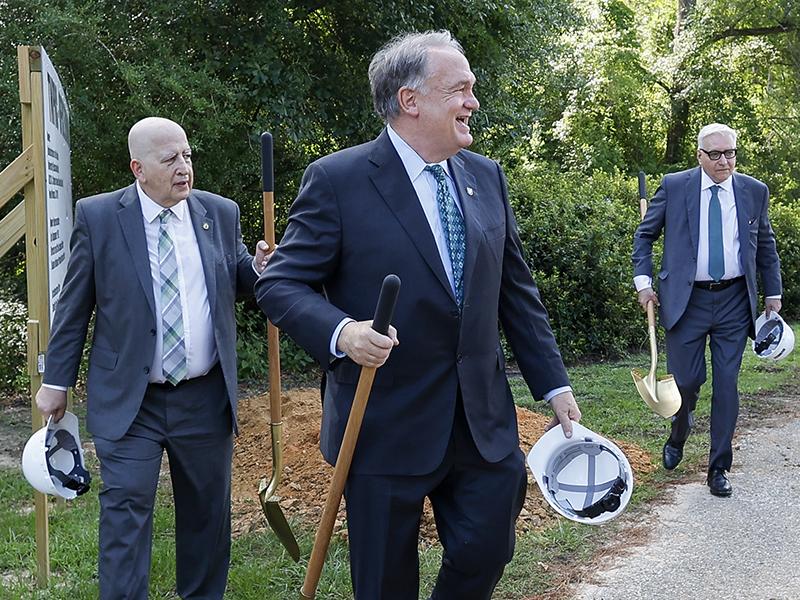Tulane National Primate Research Center breaks ground on new office building
The Tulane National Primate Research Center (TNPRC) broke ground on a new office building at its Covington campus, marking the beginning of a two-phase expansion project set to enhance the quality of the work environment for faculty and staff who have operated from temporary buildings as the center’s growth outpaced its physical footprint. These improvements join an unprecedented number of capital projects transforming Tulane’s uptown and downtown campuses in New Orleans, reflecting a cumulative $1 billion investment by the university.
The TNPRC is one of seven National Primate Research Centers funded by the National Institutes of Health and has been at the forefront of emerging and infectious disease research since its inception in 1964. From pioneering HIV/AIDS research to serving as a national resource for emerging infectious diseases like COVID-19, scientists at the TNPRC achieve breakthroughs in prevention and treatment, leading to better health outcomes worldwide.
The first phase of the project features a new 10,000 square-foot office building that includes both dedicated offices and shared workspaces for nearly 70 employees, as well as a separate Occupational Health and Safety clinic to support the center’s nearly 350 employees. The second phase involves renovating unused wings of the Division of Veterinary Medicine building to accommodate additional employees currently working in temporary facilities.
Tulane President Michael A. Fitts and Senior Vice President and Chief Operating Officer Patrick Norton joined the TNPRC community to commemorate the groundbreaking. They were accompanied by TNPRC Director Jay Rappaport, PhD; Senior Associate Director and Chief Operations Officer Mark Alise, PhD; Associate Director for Research Woong-Ki Kim, PhD; and Associate Director and Chief Veterinary Medical Officer Kasi Russell-Lodrigue, DVM, PhD, as well as many members of the TNPRC community who will move to the new office space once it's completed.
“As a university, we are making historic investments in the health sciences. As we expand access and elevate the quality of care on the patient-facing side, the TNPRC expands our understanding of how we can more effectively diagnose, prevent and treat diseases,” said Fitts. Addressing nearly 100 employees in attendance, he continued: “Your life-saving work on infectious diseases never stops — even when you’re not in the spotlight of a global pandemic.”
“We are thrilled to break ground on this new building, which will significantly improve the working conditions for our dedicated employees who play such a vital role in our research," said Rappaport. "This investment shows the university's commitment to excellence in research and our dedication to supporting our exceptional faculty and staff.”

